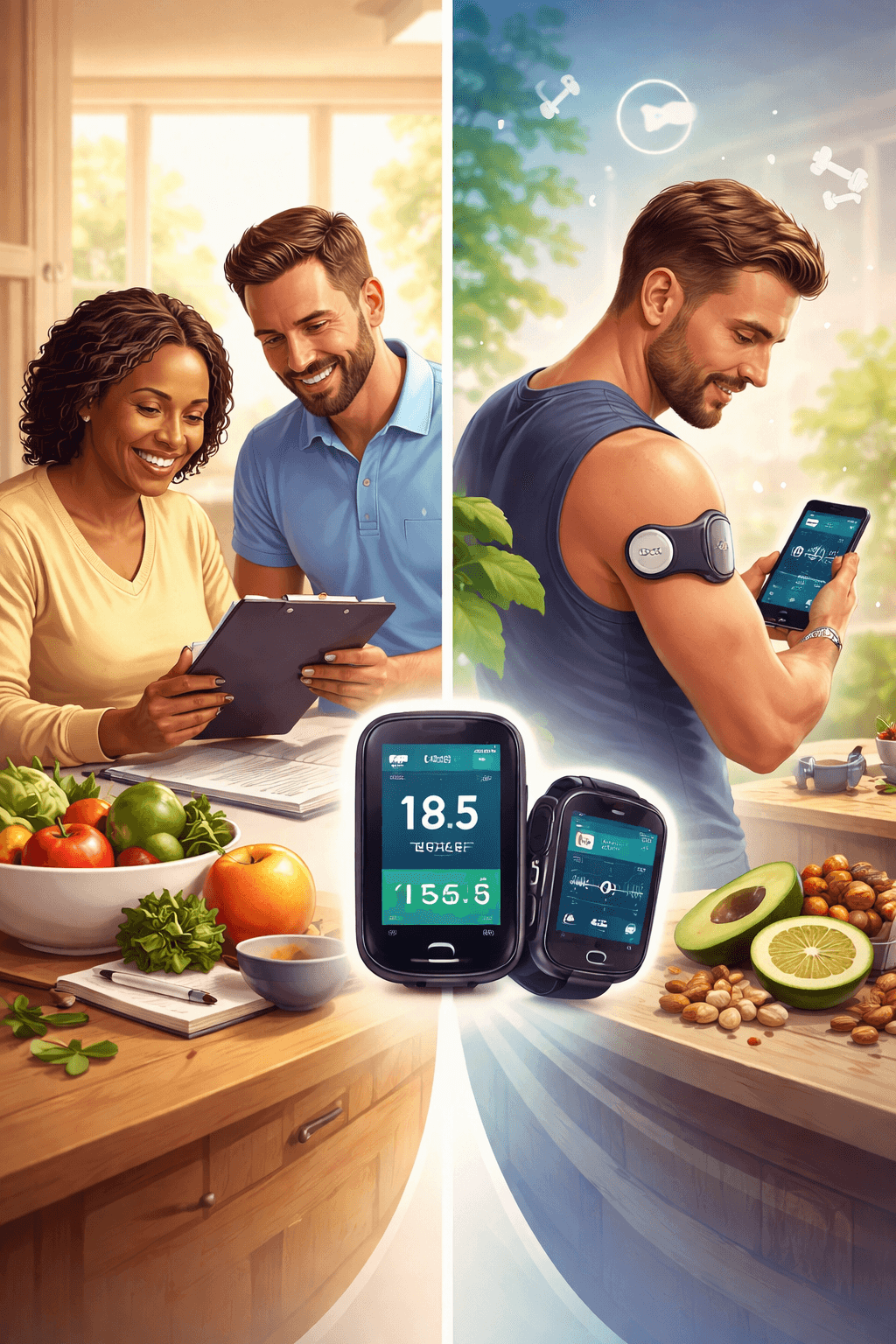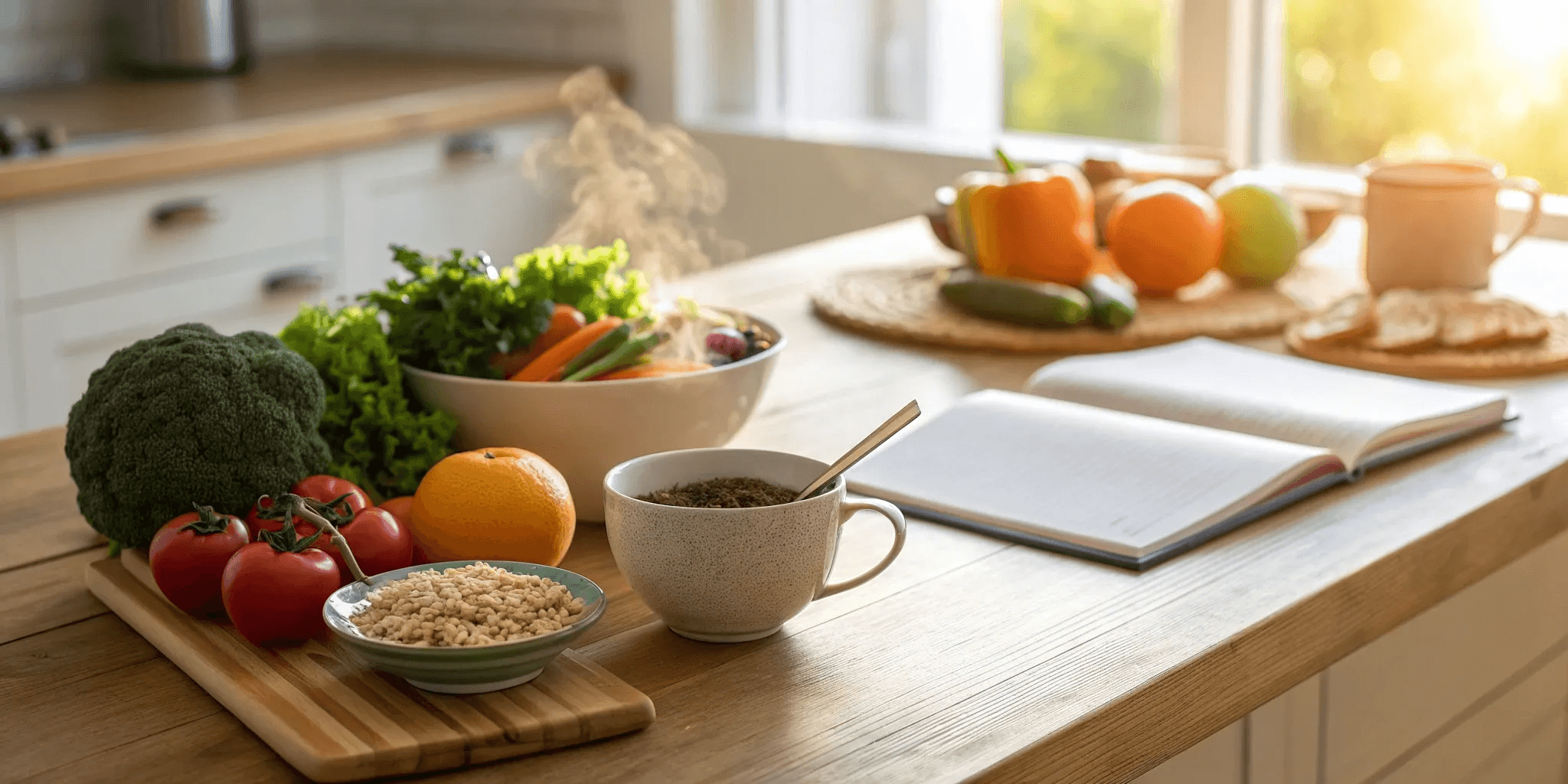Discover the best foods to lower blood sugar and how to incorporate them into your diet. Get personalized support from Heald to manage diabetes and improve your health today.
Heald Membership: Your Path to Diabetes Reversal
Table of content
Introduction
For individuals living with diabetes, managing blood sugar levels is a crucial part of daily life. While medication plays a role, the food you eat is just as important in controlling blood sugar and improving overall health. At Heald, we guide you through personalized diet plans and lifestyle changes, helping you make smarter choices to lower blood sugar and improve your quality of life.
In this blog, we’ll explore the best foods for lowering blood sugar, how to incorporate them into your diet, and additional tips for managing Type 2 diabetes effectively.
Best Foods for Lowering Blood Sugar
The right foods can work wonders in keeping blood sugar levels steady. A balanced diet filled with nutrient-dense foods can help you manage diabetes more effectively, and in some cases, even reverse its effects.
Top Blood Sugar Lowering Foods
Leafy Greens: Vegetables like spinach, kale, and Swiss chard are packed with nutrients and are extremely low in carbohydrates, which helps prevent blood sugar spikes. A study published in Diabetes Care highlighted that consuming leafy greens significantly improves glycemic control in individuals with Type 2 diabetes.
Berries: Blueberries, strawberries, and raspberries are rich in antioxidants and have a low glycemic index (GI), making them ideal for diabetics. Research in The Journal of Nutritional Biochemistry shows that berries help improve insulin sensitivity and lower blood sugar levels.
Nuts and Seeds: Almonds, walnuts, flaxseeds, and chia seeds are excellent sources of healthy fats and protein, which slow the absorption of sugar into the bloodstream. These foods have been shown to lower post-meal glucose levels, according to a study from the American Journal of Clinical Nutrition.
Whole Grains: Brown rice, quinoa, and oats have a lower glycemic index than refined grains, meaning they release glucose into the bloodstream more slowly, helping maintain stable blood sugar levels.
Fatty Fish: Salmon, sardines, and mackerel are rich in omega-3 fatty acids, which reduce inflammation and improve insulin sensitivity. Studies from The American Diabetes Association indicate that incorporating fatty fish into your diet can help lower blood sugar and reduce the risk of heart disease, which is common in diabetics.
Legumes: Beans, lentils, and chickpeas are rich in fiber and protein, helping slow the digestion of carbohydrates and lowering blood sugar after meals. According to a study published in Archives of Internal Medicine, eating legumes regularly can improve blood sugar control and reduce the risk of cardiovascular complications in diabetics.
Incorporating These Foods into Your Diet
Incorporating these blood sugar-lowering foods into your diet doesn’t have to be difficult. Here are some practical tips to help you:
Start Your Day with Oats: Instead of sugary cereals, opt for a bowl of oatmeal topped with fresh berries and a sprinkle of chia seeds. This breakfast is packed with fiber, antioxidants, and protein, helping to stabilize blood sugar levels throughout the day.
Add Leafy Greens to Every Meal: Toss spinach or kale into your smoothies, salads, or as a side dish. Leafy greens are nutrient-dense, low in calories, and perfect for controlling blood sugar.
Snack on Nuts: Keep a handful of almonds or walnuts handy as a snack between meals. These are excellent for keeping hunger at bay and maintaining stable blood sugar levels.
The Heald WA channel is a goldmine of support and information for those on their diabetes reversal journey. Sharing experiences, tips, and triumphs with fellow community members can provide invaluable motivation and practical advice. From meal plans and exercise routines to emotional support and accountability, the collective wisdom within the group can accelerate progress and make the path to diabetes reversal feel less daunting. diet-and-diabetes-creating-a-balanced-meal-plan-for-blood-sugar-control
Effective Diet Plans
The food choices you make can significantly impact your diabetes management, and structured diet plans can help you make the right choices every day.
Diet to Lower A1C

Credits: MDPI
A well-balanced, low-glycemic diet can help lower A1C levels over time, reducing the risk of complications. According to a study published in The Lancet, individuals following a Mediterranean diet experienced a 20% reduction in A1C levels within six months. This diet is rich in healthy fats, lean proteins, whole grains, and vegetables, which help regulate blood sugar and improve heart health.
At Heald, we personalize nutrition plans that align with your unique needs. Our AI-driven health monitoring tracks your progress, ensuring that your diet is effectively lowering your A1C and managing your diabetes.
Type 2 Diabetes Food List
Creating a food list for managing Type 2 diabetes is essential for keeping your diet on track. Here’s a simple breakdown:
Proteins: Lean meats like chicken, turkey, and plant-based options like tofu and legumes.
Carbs: Whole grains such as quinoa, brown rice, and whole-wheat bread.
Fats: Healthy fats like avocado, olive oil, and fatty fish.
Fruits: Low-glycemic fruits such as berries, apples, and pears.
Vegetables: Leafy greens, broccoli, cucumbers, and bell peppers.
Additional Tips
What Foods Can Diabetics Eat Freely?
Some foods are so low in carbohydrates and calories that they can be consumed freely by diabetics. These include:
Non-Starchy Vegetables: Lettuce, zucchini, cucumbers, and peppers can be eaten in abundance as they have minimal impact on blood sugar.
Herbs and Spices: Garlic, cinnamon, and turmeric not only enhance flavor but have been shown to have anti-inflammatory and blood sugar-lowering properties.
Food Chart for Diabetics
A food chart helps you plan and manage your meals effectively. You can categorize your meals into proteins, fats, and carbohydrates to ensure a balanced intake. For instance:
Breakfast: Oats (carbohydrate), berries (fruit), and chia seeds (fat/protein)
Lunch: Grilled chicken (protein), quinoa (carbohydrate), and steamed spinach (vegetable)
Dinner: Salmon (protein/fat), roasted sweet potato (carbohydrate), and sautéed kale (vegetable)
Heald provides meal planning tools and personalized food charts to help you stay on track with your diabetes management. Our behavioral psychologists and nutrition coaches ensure that your meal plan is not only effective but sustainable, guiding you toward long-term health.
Conclusion
Managing blood sugar levels is essential for diabetics, and the right diet can make all the difference. Incorporating nutrient-rich foods such as leafy greens, berries, and legumes into your daily meals helps regulate blood sugar levels and promotes overall health. Structured diet plans, like the Mediterranean diet, have been scientifically proven to lower A1C and improve insulin sensitivity.
At Heald, we believe in personalized care that aligns with your lifestyle. Our AI-driven tools, nutrition coaches, and behavioral support provide you with everything you need to make sustainable changes that improve your blood sugar levels and your health.
Ready to take control of your diabetes through a personalized diet plan? Book a consultation with Heald today and start your journey toward better blood sugar management.

Sandeep Misra is the Co-Founder and Chief Growth Officer at Heald, where he leads growth strategy and partnerships for data-driven programs focused on diabetes reversal and metabolic health. He brings over two decades of experience across healthcare technology, population health, and enterprise partnerships, having held senior leadership roles at AWS, Rackspace, and NTT Data.
Popular Blogs
Comments









